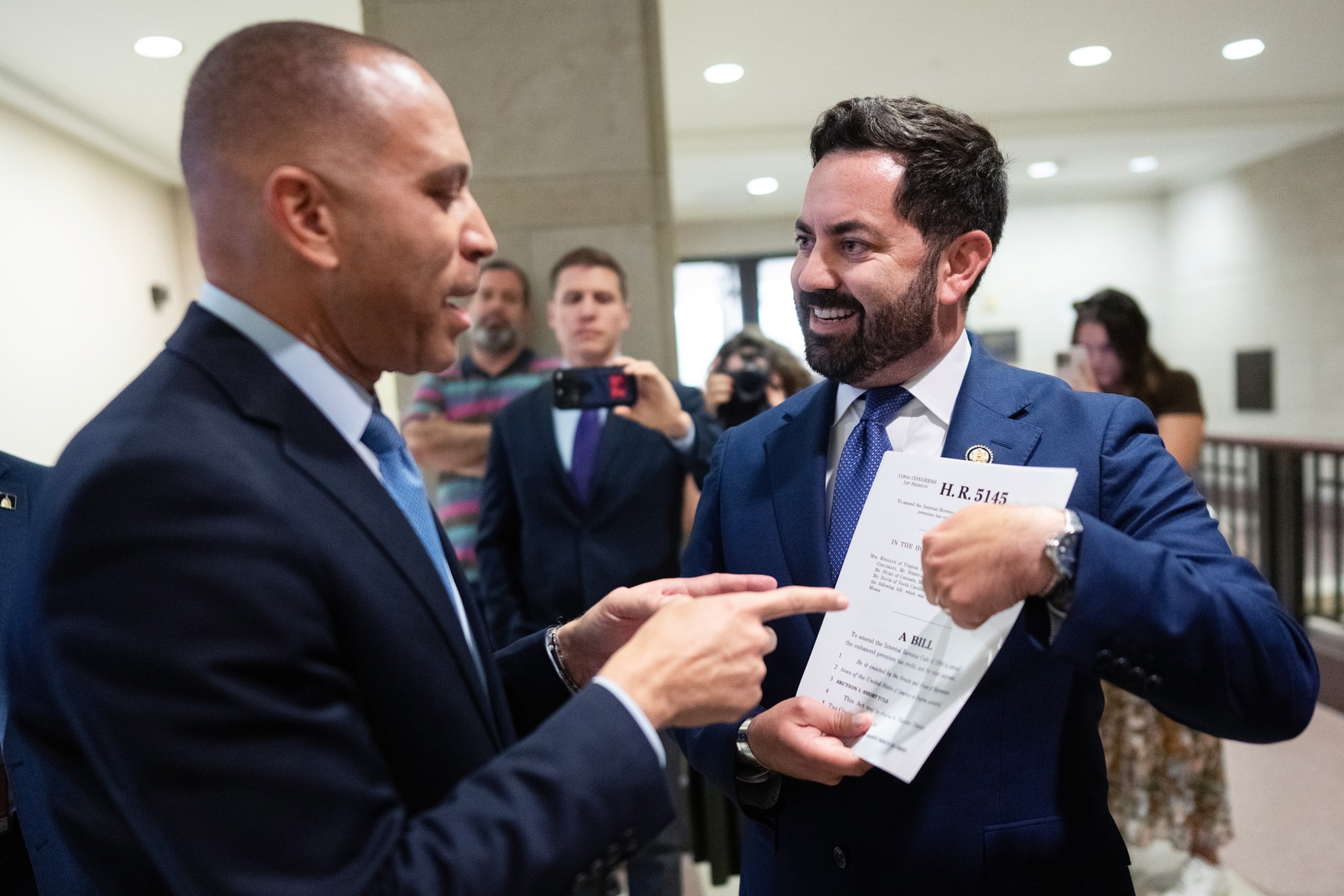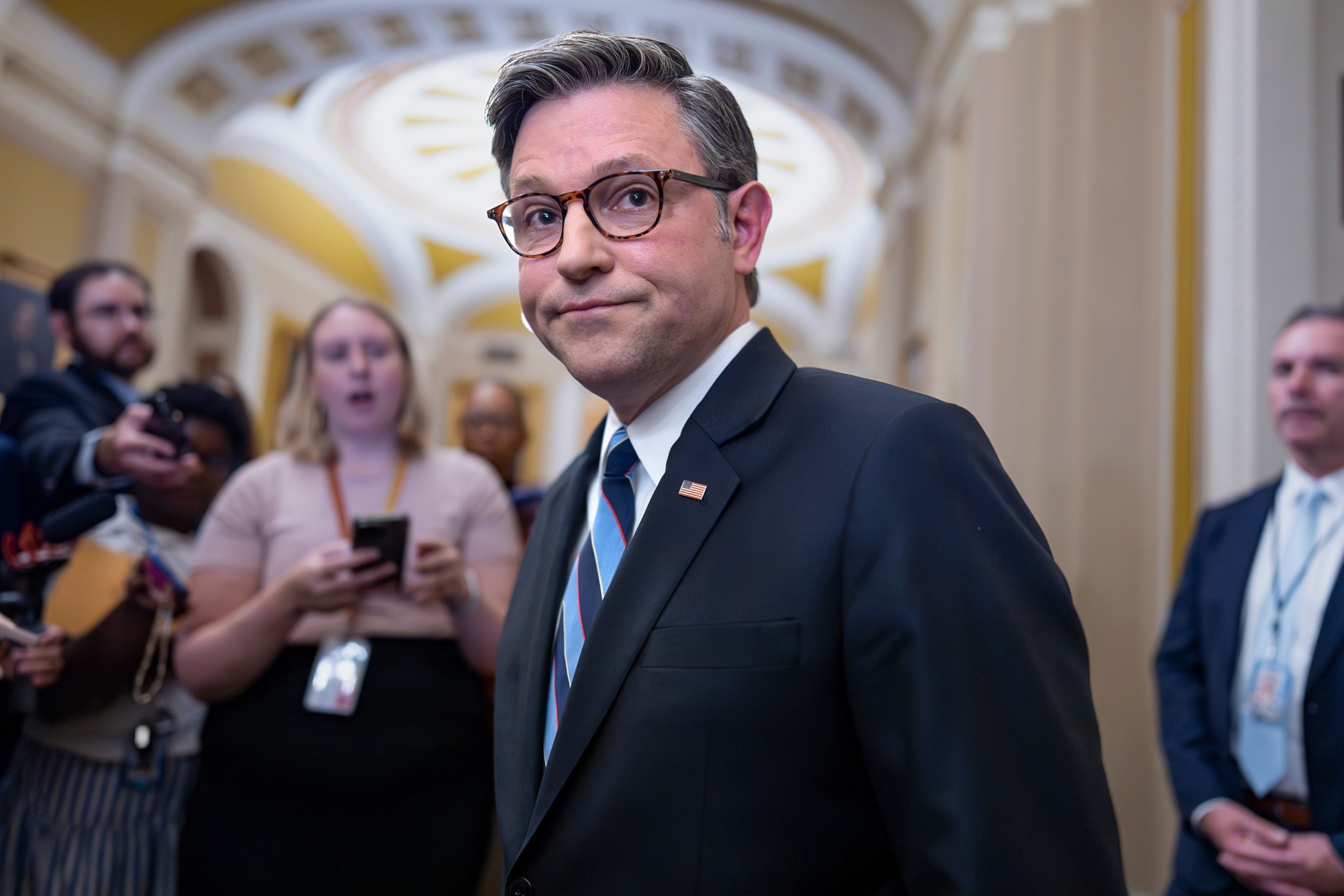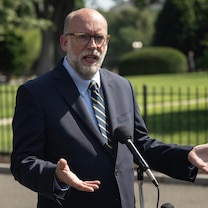How Affordable Care Act subsidies became a sticking point in the government shutdown

As the federal government shutdown enters its tenth day, one major health care issue has continued to be a sticking point: insurance subsidies.
The Affordable Care Act (ACA) subsidies, or premium tax credits, help lower or eliminate the out-of-pocket cost of monthly premiums for those who purchase insurance through the health insurance marketplace.
Eligibility for the subsidies can include factors such as household income and geographic location.
The subsidies were part of the original Affordable Care Act passed during the Obama administration and were enhanced during the COVID-19 pandemic to increase the amount of financial assistance to those who were already eligible and to expand eligibility to more people. They are set to expire at the end of the year.
Republicans have said the expansions from the pandemic era went too far and have tried to persuade Democrats to fund a temporary spending bill that doesn't address the expiring ACA subsidies, with promises of discussing ways to continue the subsidies later.
House Speaker Mike Johnson, R-La., referred to the Dec. 31 deadline to extend subsidies as being far away.
"That's a Dec. 31 issue," he said during a news conference earlier this week. "There are lots of conversations and deliberations and discussions right now, even bipartisan amongst members about necessary changes that would have to be made, pretty dramatic changes to even have that considered on the floor. But look, I'm not going to forecast the outcome of that."
However, Democrats say that with open enrollment for ACA plans beginning Nov. 1, the subsidies not being approved could be detrimental for millions of American families.
"The Democrats have said that their position on getting out of the shutdown period is that they would want to both extend and make permanent these enhanced marketplace premium tax credits," Melinda Buntin, a professor at Johns Hopkins Bloomberg School of Public Health and Johns Hopkins Carey Business School, told ABC News.
"The thing at the very top of the list is these subsidies because they are so salient and they will directly affect the pocketbooks of so many millions of Americans," Buntin said.

Buntin said that if open enrollment begins and these subsidies are not approved and loaded into the enrollment systems, people are likely to see their premiums go up.
Estimates from the Congressional Budget Office suggest that, without an extension, gross benchmark premiums could increase by 4.3% in 2026 and by 7.7% in 2027 for those on marketplace plans.
A KFF analysis last month found that people who buy insurance from the marketplace, and receive financial assistance, would see their premiums rise by about 114% on average, from $888 in 2025 to $1,904 in 2026.
There is broad support for the tax credits. A recent KFF poll, which was fielded just before the government shut down on Oct. 1, found that 78% of Americans support extending the enhanced tax credits, including more than half of Republicans and of "Make America Great Again" supporters.
House Minority Leader Hakeem Jeffries expressed on Thursday the need to extend tax credits, stating, "[U]nless we extend the Affordable Care Act tax credits, tens of millions of Americans are about to experience dramatically increased premiums, co-pays and deductibles by thousands of dollars per year."
Buntin says this could affect many Americans, but particularly those who live in states where Medicaid was not expanded and buying insurance on the marketplace is their only option.
Naomi Zewde, a fellow at the UCLA Center for Health Policy Research and assistant professor of health policy and management at the UCLA Fielding School of Public Health, told ABC News that working low-income families and adults will be affected if the ACA subsidies are not approved.
"Mainly those who don't get insurance through their job, who make too much for Medicaid but not enough to pay [about] $600-plus per month for a plan with a two-to-three-thousand-dollar deductible," she said.
However, James Blumstein, university distinguished professor of constitutional law and health law and policy at Vanderbilt University School of Law, told ABC News that even if the subsidies lapse and the Nov. 1 deadline arrives, a deal could be worked out to retroactively fix the issue.
He added that he believes congressional Democrats and Republicans could also come up with a deal that saves the ACA subsidies but doesn't keep the full expansions that were offered during the pandemic.
"I think the leverage for the Democrats will diminish," he said. "Republicans have passed a continuing resolution so that this issue is going to come back up five or six weeks again."
Blumstein continued, "Democrats will have leverage again in five or six weeks and I think that whether this goes into the period of new enrollment or not, that can all be fixed in the deal. In other words, if the time lapses that can be overcome by the subsidies coming a little bit later."
Earlier this week, President Donald Trump indicated that he was negotiating with Democrats on health care policy and that he was open to making a deal on health care subsidies in an attempt to reopen the government.
"We have a negotiation going on with the Democrats that could lead to good things, and I'm talking about good things with regard to health care," Trump told reporters in the Oval Office.
"If we made the right deal, I'd make a deal. Sure," Trump said in reference to making a deal to approve ACA subsidies.

In a statement, Senate Minority Leader Chuck Schumer denied that the White House was negotiating with Democrats.
Trump later walked back his willingness to make a deal, writing on social media that he would work with Democrats as long as the government is reopened first.
Democratic leaders have said they are not willing to vote to reopen the government unless Republicans negotiate on health care demands, while Republicans have signaled unwillingness to negotiate on health care policy unless the government is reopened -- an effective stalemate.
"Republicans are saying that we should have what is referred to as a clean bill, just continue the government operations as they were, without extending these subsidies, and then once we've got that, then we can come back and we can talk about things like extending the subsidies," Buntin said. "Democrats are seen so far unwilling to agree to that, which I think represents a sort of breakdown in normal process."
She continued, "Democrats are seeing a political opening, because there are so many millions of people who depend on these subsidies to be able to afford health insurance, and there's nothing like a deadline to use to get something you want."
A spokesperson for the Department of Health and Human Services told ABC News in a statement earlier this week that Democrats are to blame for the shutdown.
"Senate Democrats are choosing to keep the government shut down, putting major health programs at risk. They should do the right thing and vote to reopen the government," the statement read.
ABC News








